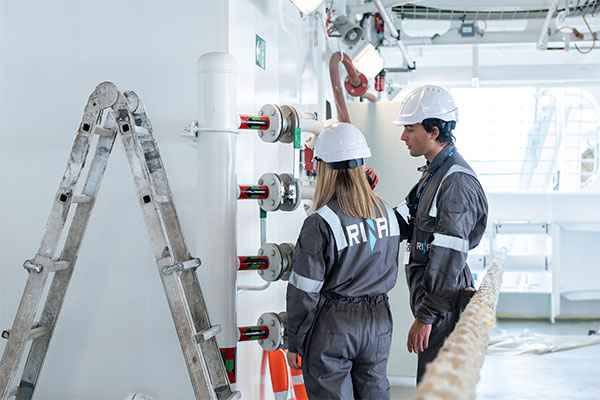UK Marine Equipment Certification
Marine equipment bound for UK Ships requires the Red Ensign Mark

In the post-Brexit landscape, distinct regulations are now in place for marine equipment within the UK. Starting from January 2023, all marine equipment intended for use on UK flagged vessels must be UK-approved. This entails having valid UK conformity assessment certification and displaying the Red Ensign marking, approved body number & UK DOC.
What we offer
Our service delivery process for marine equipment certification involves several key stages to ensure thoroughness, compliance, and client satisfaction:
- Initial consultation: Clients engage in an initial consultation with our expert team to discuss their specific needs and requirements for marine equipment certification. During this phase, we gather information about the type of equipment, its intended use, and any existing certifications.
- Proposal and agreement: Based on the information gathered, we provide a detailed proposal outlining the scope of work, estimated timelines, and associated costs. Once the proposal is accepted, a formal agreement is established, clearly defining the terms and conditions of the certification process.
- Documentation Review: Clients submit relevant documentation, including technical specifications, construction drawings, and any existing certifications. Our team conducts a thorough review to ensure that all documentation aligns with the applicable regulations and standards.
- On-Site Inspections: Trained technicians and surveyors conduct on-site inspections at shipyards, manufacturing plants, and production facilities. Inspections assess the conformity of the products to the provided documentation and evaluate the quality of the manufacturing process.
- Certification Process: Weutilize our highly qualified technicians and surveyors to carry out a precise certification process based on the chosen evaluation module. The certification process involves detailed checks, inspections, and testing procedures to verify compliance with essential safety requirements.
- Report Generation:A comprehensive report is generated detailing the findings of the inspections, testing, and overall certification process. The report serves as a transparent and documented record of the equipment's compliance status.
- Certification Issuance: Upon successful completion of the certification process, we issue the relevant certifications, including the UK conformity assessment certification and Red Ensign marking where applicable.
- Ongoing Support: We provide ongoing support to clients, addressing any inquiries, changes, or additional requirements that may arise. Regular communication ensures that clients remain informed and supported throughout the entire service delivery process.
This comprehensive service delivery process is designed to meet the specific needs of clients, ensuring that their marine equipment complies with regulations and industry standards while upholding the highest levels of safety and quality.